
The origin of the European rabbit in the UK is not as obvious as it first looks. The most popular theory is that they were introduced by the Romans shortly after their invasion of Britain in AD43. However, historians believe that rabbits first arrived on British soil with the Normans in 1066 as the Bayeux Tapestry is thought to show soldiers carrying rabbits in sacks and crates. Interestingly, there are no written records of rabbits prior to the Norman Invasion and there is no mention of the species in the Domesday Book of 1086.
The discovery of rabbit remains at the Eartham Pit archaeological site in West Sussex changed the understanding of the rabbit’s ecological timeline in Britain for good. The remains were carbon dated as half a million years old, confirming Britain had its own native population of rabbits that are thought to have become extinct in the last Ice Age.
Rabbits are classified as a keystone species in British ecology as they have the ability to adapt to a wide variety of landscapes and ecosystems. On the most simplistic level, the rabbit provides a source of food to both avian and mammal predators, its redundant burrows create nesting habitat for many bird species — including the red-listed Atlantic puffin — and their grazing patterns on chalk meadows and downs also support unique vegetation categories.
Sadly, a significant decline in rabbit populations began to be noted in the early 1950s, due in part to myxomatosis and, more recently, the effect of rabbit haemorrhagic disease virus (RHDV) on the species.
Esta historia es de la edición August 05, 2020 de Shooting Times & Country.
Comience su prueba gratuita de Magzter GOLD de 7 días para acceder a miles de historias premium seleccionadas y a más de 9,000 revistas y periódicos.
Ya eres suscriptor ? Conectar
Esta historia es de la edición August 05, 2020 de Shooting Times & Country.
Comience su prueba gratuita de Magzter GOLD de 7 días para acceder a miles de historias premium seleccionadas y a más de 9,000 revistas y periódicos.
Ya eres suscriptor? Conectar
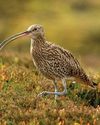
United we stand
Following United Utilities' decision to end grouse shooting on its land, Lindsay Waddell asks what will happen if we ignore our vital moors

Serious matters
An old gamebook prompts a contemplation on punt-gunning
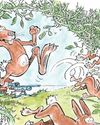
They're not always as easy as they seem
While coneys of the furry variety don't pose a problem for Blue Zulu, he's left frustrated once again by bolting bunnies of the clay sort
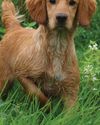
Debutant gundogs
There's lots to think about when it comes to making the decision about when to introduce your dog to shooting

When the going gets rough
Al Gabriel returns to the West London Shooting School to brush up on his rough shooting technique

The Field Guide To British Deer - BDS 60th Anniversary Edition
In this excerpt from the 60th anniversary edition of the BDS's Field Guide To British Deer, Charles Smith-Jones considers the noise they make
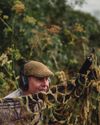
A step too far?
Simon Garnham wonders whether a new dog, a new gun and two different fields in need of protection might have been asking too much for one afternoon's work

Two bucks before breakfast
A journey from old South London to rural Hertfordshire to stalk muntjac suggests that the two aren't as far detached as they might seem
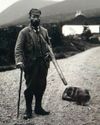
Stalking Diary
Stalkers can be a sentimental bunch, and they often carry a huge attachment to their hill

Gamekeeper
Alan Edwards believes unique, private experiences can help keepers become more competent and passionate custodians of the countryside